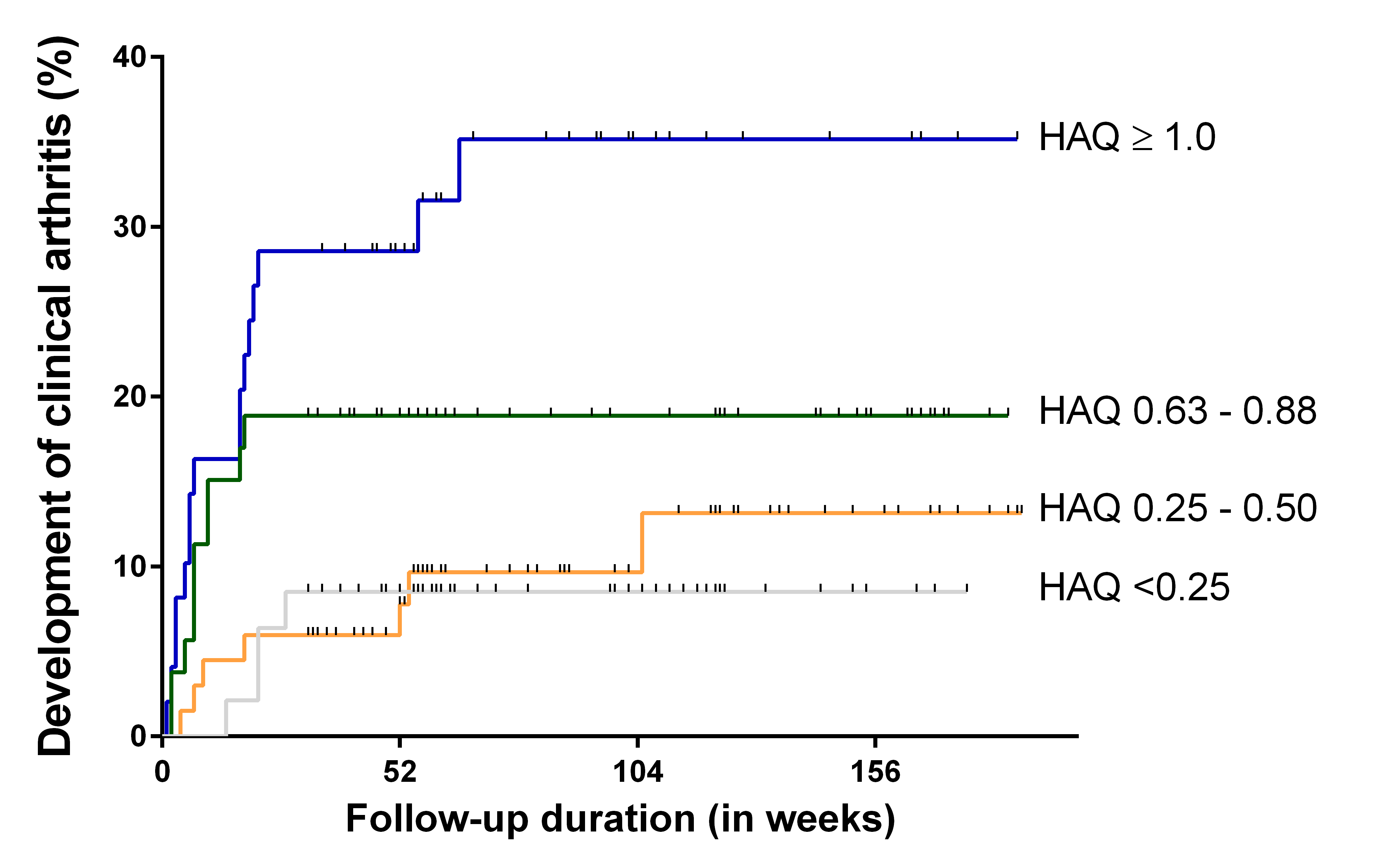Session Information
Date: Sunday, November 13, 2016
Title: Rheumatoid Arthritis – Clinical Aspects I: Pre-RA and Progression to Rheumatoid Arthritis
Session Type: ACR Concurrent Abstract Session
Session Time: 4:30PM-6:00PM
Background/Purpose: A phase of arthralgia precedes the emergence of rheumatoid arthritis (RA). It is unknown if patients have functional limitations in this phase. We assessed functional disability in patients with Clinically Suspect Arthralgia, its association with MRI-detected subclinical inflammation and with progression to clinical arthritis.
Methods: From April 2012 to April 2015, 255 CSA-patients had arthralgia for <1 year and were, based on clinical presentation, considered at risk for RA by their rheumatologists. At baseline, functional disability was assessed using HAQ-scores. Subclinical inflammation was assessed using unilateral 1.5Tesla MRI of MCP, wrist and MTP-joints. Synovitis, tenosynovitis and bone marrow edema scores were summed in the total MRI-inflammation score. Patients were followed on arthritis development.
Results: Median HAQ-score at presentation was 0.50. Higher total MRI-inflammation scores were associated with higher HAQ-scores (β=0.017, 95%CI=0.004-0.030). During median 61 weeks follow-up, 41 patients progressed to clinical arthritis. HAQ-scores ≥1.0 were associated with arthritis development (HR=4.60, 95%CI=1.54-13.75). Within converters, median HAQ-scores did not increase from presentation with Clinically Suspect Arthralgia to arthritis development (0.88 and 0.75, p-value=0.59).
Conclusion: Functional limitations already exist during the symptomatic pre-arthritis phase, with a similar severity as in the early clinical arthritis-phase. HAQ-scores ≥1.0 were associated with progression to clinical arthritis. Figure 1. Kaplan-Meier One Minus Survival plot showing cumulative progression to clinical arthritis for CSA-patients divided in four groups based on their baseline HAQ-score. 
To cite this abstract in AMA style:
ten Brinck RM, van Steenbergen HW, Mangnus L, Burgers LE, Reijnierse M, Huizinga TW, van der Helm-van Mil AH. Functional Disability in Patients Presenting with Clinically Suspect Arthralgia and Progression to Clinical Arthritis [abstract]. Arthritis Rheumatol. 2016; 68 (suppl 10). https://acrabstracts.org/abstract/functional-disability-in-patients-presenting-with-clinically-suspect-arthralgia-and-progression-to-clinical-arthritis/. Accessed .« Back to 2016 ACR/ARHP Annual Meeting
ACR Meeting Abstracts - https://acrabstracts.org/abstract/functional-disability-in-patients-presenting-with-clinically-suspect-arthralgia-and-progression-to-clinical-arthritis/
